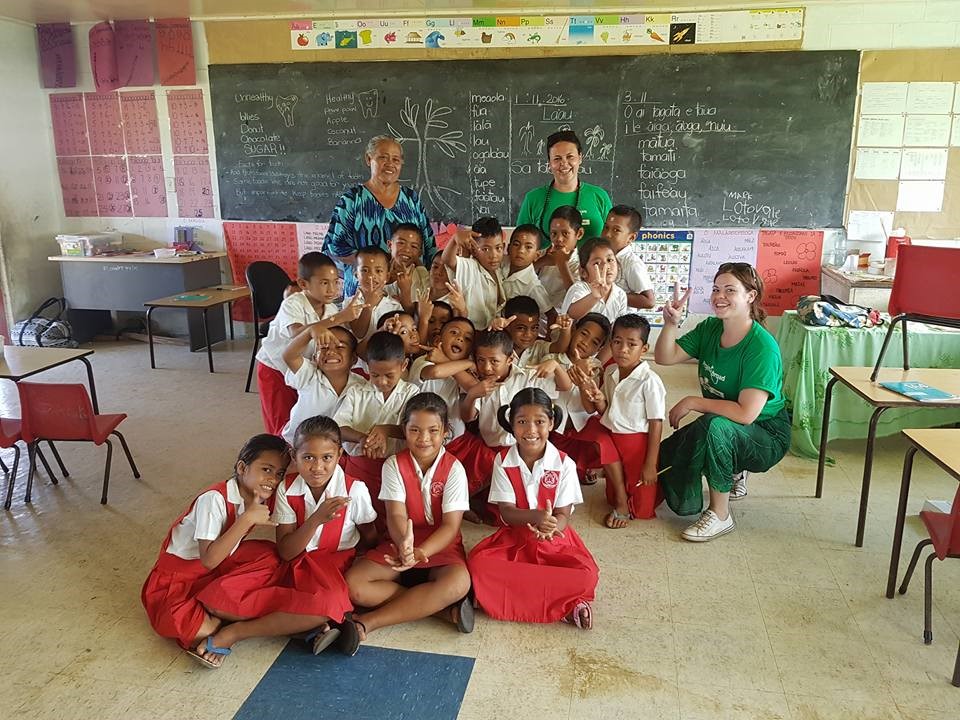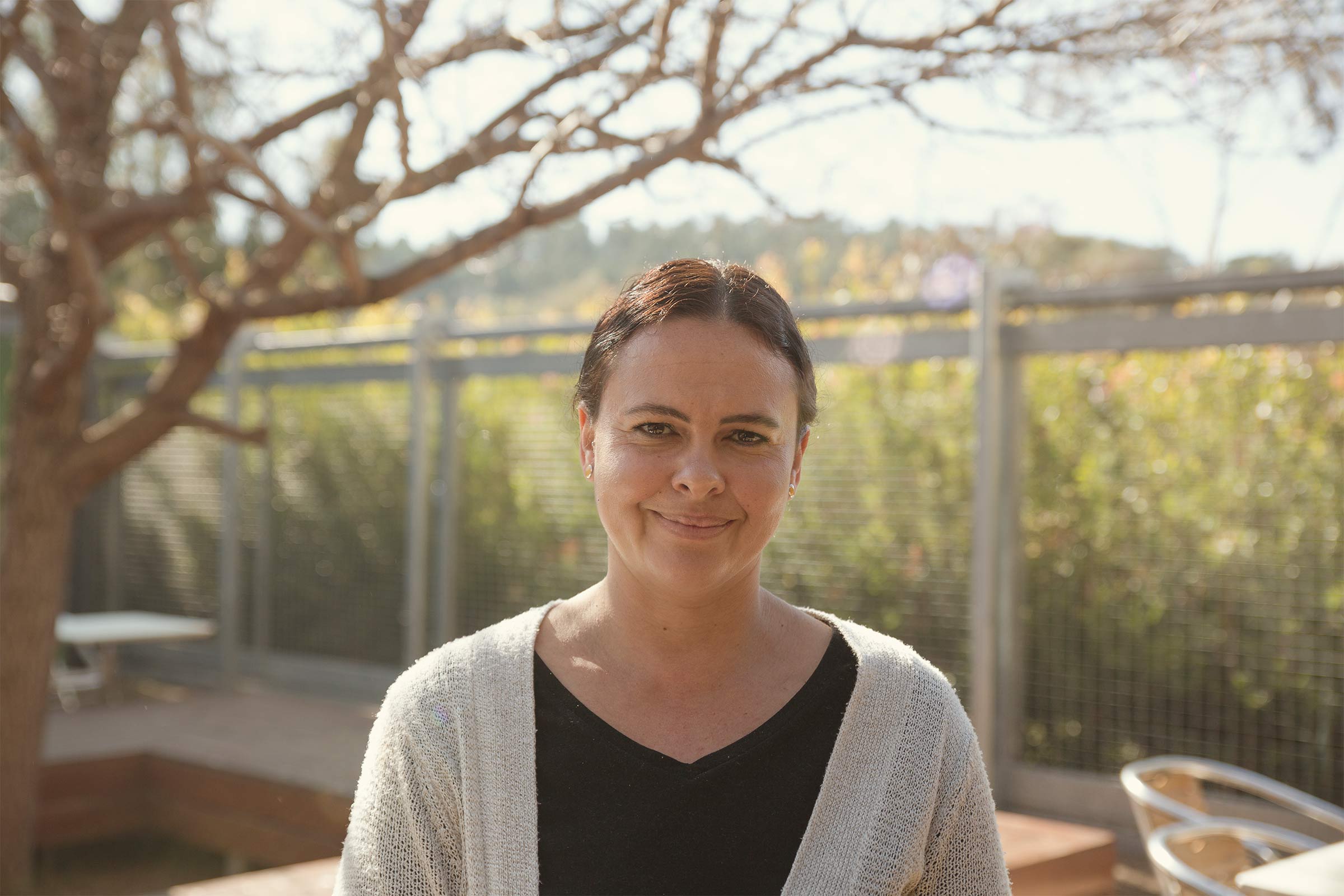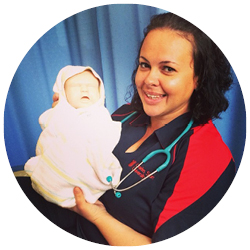“It’s never too late for First Nations women to follow their dreams.” These are the inspirational words of Charles Sturt University nursing graduate Kristy-Lee Williams, a woman whose ambition is to close the gap in First Nations health and advocate culturally appropriate care for her people.
The proud First Nations mother of three young children was inspired to pursue a career in health as a registered nurse following the birth of her first child, after she was touched by the high level of patient care and support she received from her midwives.
Having 10 years’ service in First Nations affairs, Kristy-Lee shared the moment that encouraged her to get started at Charles Sturt: “I thought to myself, being a midwife would have to be the most amazing and rewarding career.”
Graduating with a Bachelor of Nursing1 has led Kristy-Lee to new employment opportunities, being recognised with a Charles Sturt University NAIDOC Award and looking forward to the next chapter of her journey where she will pursue further study with a Charles Sturt midwifery degree next year.
To help keep her on the right track, Kristy-Lee took advantage of the wide range of support available to First Nations students through Charles Sturt’s First Nations student services.
-Lee Williams
Bachelor of Nursing graduate
Could you tell us about what led to you choosing to study nursing at Charles Sturt?
I finished Year 12 and didn’t know what I wanted to do in life and didn’t want to go to university like a lot of the other students. So I did a lot of seasonal and factory work. Finally I found an office job in First Nations affairs which I stayed at for 10 years.
I then decided to become an at-home mum as I was expecting my first baby. After having my son at the Wagga Wagga Base Hospital, I was amazed by the registered nurses and midwives as they were just so beautiful, caring and supportive. And I thought to myself, being a midwife would have to be the most amazing and rewarding career. So I decided to become a registered nurse and midwife.
How did receiving an First Nations Health Scholarship impact on your study experience?
I was so appreciative and grateful to receive a scholarship as I was, at the time, an at-home mother to three young children and I had to put my youngest into childcare full-time so I could attend university. It helped me greatly by assisting towards university costs such as my textbooks and placements.
How did you balance study with raising a family? If there were any challenges, how did you overcome these?
I commenced my uni degree with a five year old, three year old and newborn baby. So there were many challenges. Being away for long periods of time for the work-integrated learning (previously called workplace learning) placements was difficult as we never had any family locally to help with our children. I was very lucky to have a supportive partner. Plus, my mother and mother-in-law would come to help, which was greatly appreciated. I also tried to arrange all of my classes into a few days. And when the kids were at school, day care or in bed, I would study and do my assignments. After classes I would also study before I had to pick my children up.
What was your study routine like? What did a typical uni day look like for you?
A typical uni day with children started with doing the drop-off to school and day care. Then I’d go to uni to attend lectures, tutorials or lab classes for the day. In between and after classes, I would go to the First Nations Student Centre (Ngungilanna). There, I would use my spare time to study or work on my assignments. I would then pick my children up and I would do further study after they would go to bed.
I used the First Nations Student Centre (Ngungilanna) on a daily basis. This place was like a second home and all the staff and other students became like family. I will forever be grateful for the support that they provided.
Could you tell us about any work-integrated learning. How did this help set you up for your First Nations nursing career?
All of the work-integrated learning placements assisted all the students with the necessary knowledge and skills to start our new careers in nursing.
The biggest highlight of my study experience was attending a two-week international workplace learning experience in Samoa. It was an amazing experience to learn about Samoan health and culture.
I hope that I can inspire and encourage other women with children and, in particular, First Nations women to follow their dreams and goals in life as it’s never too late.

What do you hope to achieve in your First Nations nursing career? How do you want to make a difference?
I was offered a postgraduate position at the Wagga Wagga Base Hospital straight after I graduated, which was very exciting.
I’d love to make a difference to improving and closing the gap in First Nations nursing. Moreover, I’d like to provide support, be an advocate and provide culturally appropriate care to my people.
I was very lucky to receive a postgraduate midwifery student position. I’ll be studying midwifery at Charles Sturt next year. I’m really looking forward to it.
What does a Charles Sturt University NAIDOC Award mean to you?
I was overwhelmed and truly honoured to be recognised with a Charles Sturt University NAIDOC Award.
I hope that I can inspire and encourage other women with children and, in particular, First Nations women to follow their dreams and goals in life. It’s never too late.
What are your recommendations for working parents who may be thinking of returning to study?
Just make sure you have a good family, work and study balance because all are very important. If it’s what you’re passionate about then do it – especially as First Nations women – otherwise you may regret it. The hard work and dedication eventually pays off.
Follow your passion
If you’re ready to start living your dream career, a Charles Sturt degree will create a world of opportunity. So you can make a real difference. If you want to pursue a career in healthcare, check out our wide range of degrees in:
- allied health
- dentistry and oral health
- medicine and health
- nursing and midwifery
- psychology and social work.

1CRICOS: 0101019, 010599C



You must be logged in to post a comment.